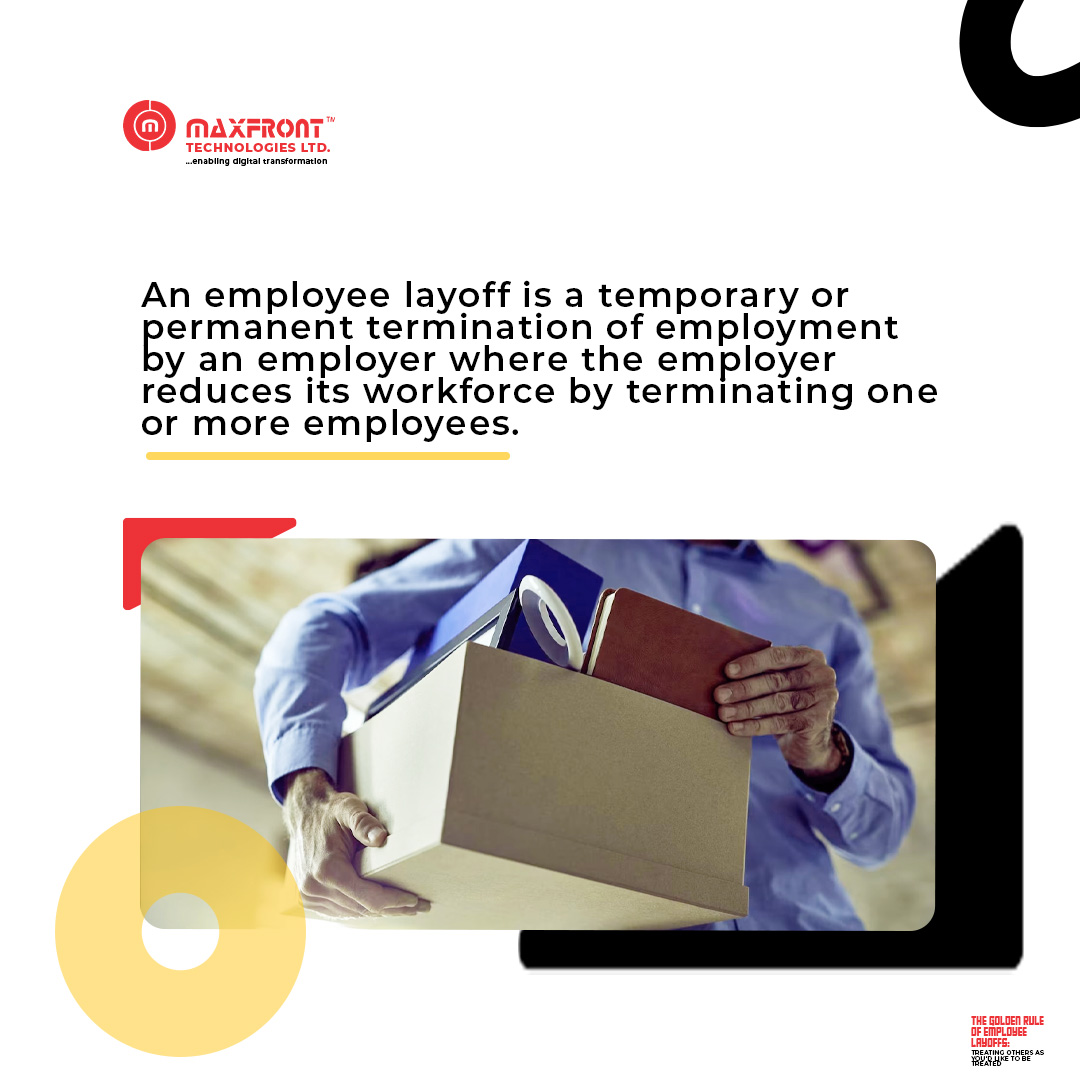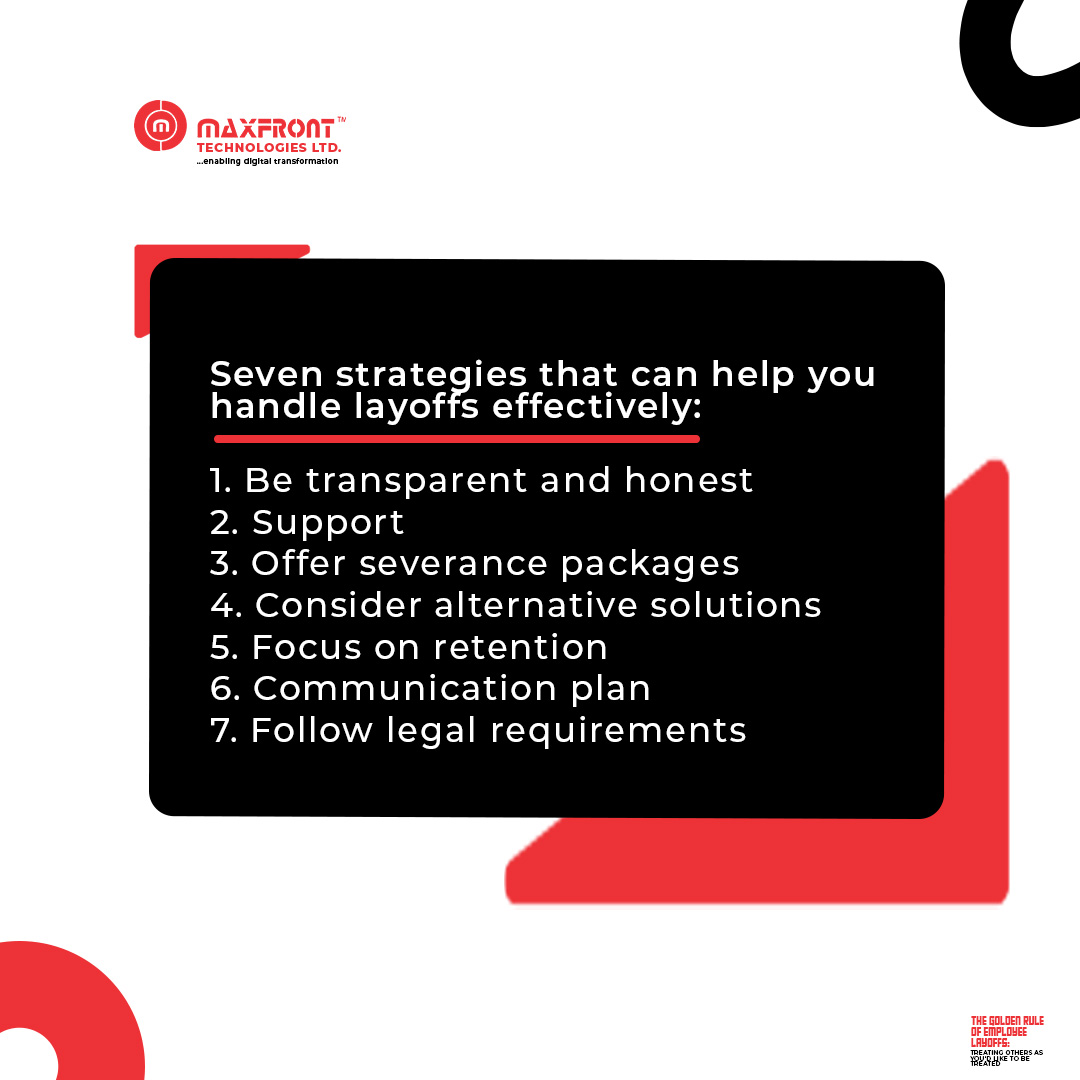
An employee layoff is a temporary or permanent termination of employment by an employer where the employer reduces its workforce by terminating one or more employees. Typically, a layoff is initiated by the employer due to various reasons, such as downsizing, cost-cutting, restructuring, business closures, or economic challenges. Employees are relieved of their duties during a layoff, and their employment relationship with the employer is terminated. Employees may sometimes be offered severance pay or other benefits as part of the layoff process.
Laying off employees is a challenging and often unpleasant task for any employer. While it may be necessary due to various reasons, such as budget cuts, restructuring, or downsizing, it’s essential to remember that it can significantly impact the lives of those affected. As an employer, handling layoffs with empathy and care is crucial, following the golden rule of treating others as you’d like to be treated.
Communicating openly and honestly is the first step towards treating employees with respect during layoffs. Inform them of the reasons behind the decision and clarify that their job loss is not due to any fault of their own. Provide a clear timeline of what they can expect regarding severance pay, benefits, and other arrangements.
Next, show compassion by offering support and resources to help employees transition to their next job. This may include career counseling, resume-building workshops, or job placement services. Providing access to these resources can help ease the burden of job loss and empower employees to take control of their future.
It’s also essential to handle layoffs professionally and respectfully. Conduct the process with privacy and confidentiality to avoid unnecessary gossip and speculation. Ensure that employees have ample time to process the news and ask any questions they may have. And finally, provide them with the opportunity to say goodbye to their colleagues and leave on a positive note.
While employee layoffs are never easy, handling them with empathy and care can make a significant difference in how they impact those affected. Following the golden rule of treating others as you’d like to be treated can help ensure that employees are treated with the respect and dignity they deserve during this difficult time. As an employer, it’s essential to Remember that your staff is your most valuable asset. Treating them with empathy and care can help build a positive reputation and a loyal workforce in the long run.
Summary of Key Points

Layoffs are a difficult situation for employers and employees, requiring careful planning and communication to minimize the impact on everyone involved. These seven strategies can help you handle layoffs effectively:
- Be transparent and honest: Communicate openly with affected employees about the reasons for the layoff, the criteria for selecting employees, and the timeline for the process.
- Support: Offer outplacement services such as career counseling, job search assistance, and resume writing services to help affected employees find new employment.
- Offer severance packages: Provide financial compensation and benefits to employees who are laid off, such as severance pay, extended health benefits, and retirement plan contributions.
- Consider alternative solutions: Explore alternative layoff options such as reduced hours, furloughs, or salary cuts.
- Focus on retention: Identify and retain critical employees who are vital to the company’s operations or have specialized skills that are difficult to replace.
- Communication plan: Develop a communication plan to inform other employees and stakeholders about the layoffs, including the impact on the business, the steps to address the situation, and how the company plans to move forward.
- Follow legal requirements: Comply with all legal requirements related to layoffs, such as providing advance notice, offering COBRA benefits, and following fair employment practices.
Handling layoffs requires a thoughtful and compassionate approach that considers the needs of both the company and its employees.